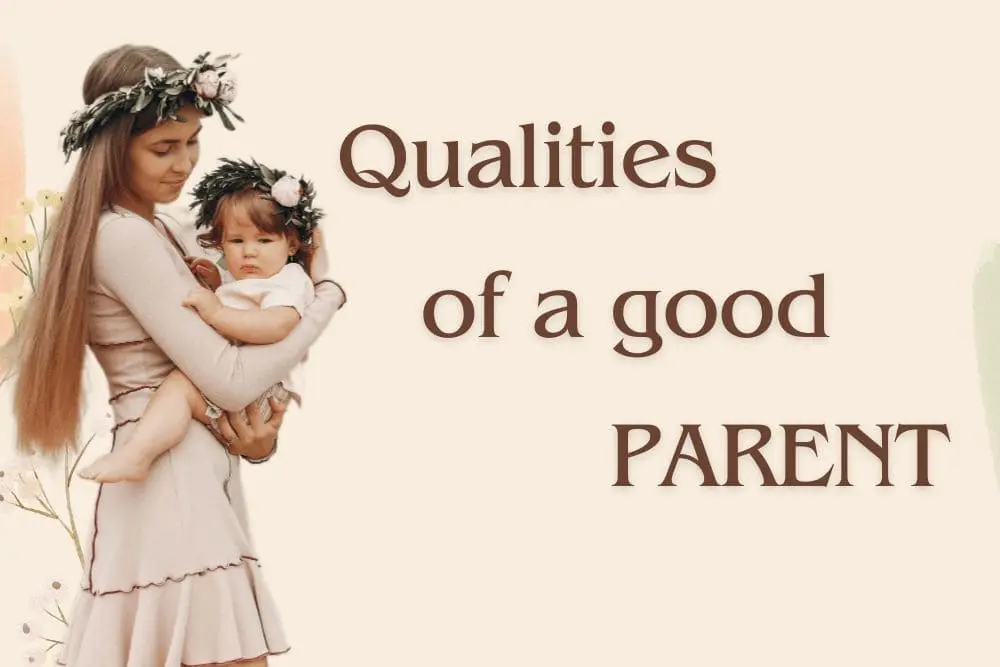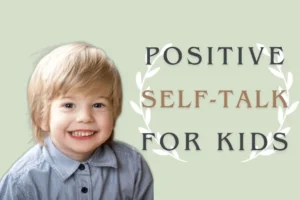Written by: Barbra Smith / Last updated: Mar 1, 2024
Couples, especially newlyweds, should know the necessary qualities of a good parent to have a successful life with their future kids.
This knowledge is not optional because parenting is just like any other task; you need to study to succeed, and without gaining enough knowledge, challenges arise.
Everything we become later in life is built on the foundation and instructions made by our parents. Sometimes we blame them for their excessive interference or, in some cases, for ignoring us.
In this article, we will take you on an interesting yet simple lesson about the characteristics of a good parent and how to do good parenting.
- Good parents do not do conditional parenting.
- Who should kids attach to?
- A happy marriage is one of the good parenting skills.
- Physical parenting is always essential.
- Don’t mix priorities with good parenting.
- Assign them some responsibilities.
- Do what you say to them.
- Good parents discipline; normal parents punish.
- Other characteristics of a good parent
Good parents do not do conditional parenting.
Many parents say that using punishments like time out is effective in teaching kids right from wrong, but Dr. Gabor Mate has another thought.
Dr. Gabor says that time out can make things right only for a short time, but it sends negative messages to our kids because it withdraws the relationship between parents and their children.
This technique also teaches kids that their parents’ love is conditional and that they are acceptable when they only please them.
In good parenting, parents should show unconditional love for their kids and make them understand the outcomes of their behavior rather than yelling or scolding.
Who should kids attach to?
One of the qualities of a good parent is to attach to her kids from an early age to support them with love and joy.
These days, many parents are not available to their kids because they are busy earning money to secure their needs.
In this case, kids need to attach to someone, and in the absence of their parents, they will fill that empty void with peer groups.
When children become more attached to their peers than their parents, it will not be healthy for them because they will become their models and mentors.
At this point, parents will lose authority and become authoritarian, and that builds up more pressure on kids, so when kids don’t respond, we call them spoiled, but parents forget that they are the ones who started it all.
Good parents should remember that kids are not born spoiled by nature; they are just a reaction to their actions.
A happy marriage is one of the good parenting skills.
Children become more happy and satisfied with their lives when they see their parents get along with each other.
A study conducted in 2000 by the Wiley Online Library states that there is a direct relationship between a happy marriage and the well-being of children.
When parents have a good relationship with each other and show their love to their children, then that is good parenting.
On the contrary, when parents have conflicts with each other in their children’s presence and do not care about their mental health, then there will be consequences.
The bad effects of an unhappy marriage include impaired mental health, low life satisfaction, depression, poor school performance, etc.
The real relationship does not depend on words but also on the parents’ ability to be with their kids, so they can find more joy and happiness when their parents are more available.
Physical parenting is one of the qualities of a good parent.
New parents might not give enough attention to physical engagement with their kids, like hugging, kissing, etc.
The qualities of a good parent include hugging because it can send positive messages to kids, such as feeling safe, comfort, love, and appreciation.
Hugs can improve the mental and physical development of a child; on the contrary, kids who don’t get enough physical engagement suffer from delayed speech and other skills.
Related: ADVICE FOR NEW PARENTS
Don’t mix priorities with good parenting.
Many parents, especially new ones, focus their efforts totally on their kids and forget that parenting is one of their tasks.
Parents should share the responsibilities of their journey together, such as securing basic needs, nurturing their relationships with each other, and raising good individuals in society.
Good parents mustn’t ignore their personal lives, so they should practice their favorite sport regularly and hang out with their friends because having a positive mentality contributes to their success.
Assign them some responsibilities.
Good parents encourage their kids to seek autonomy as soon as possible.
Teaching your kids to do chores and assigning them simple ones is a great way to free up some of your time and teach them to be responsible for themselves.
Many helicopter parents do not like to give their kids autonomy because they fear they will fail, get disappointed, or not do the task perfectly.
If kids feel disappointed, then it is our role to guide and encourage them again until they succeed, because our goal is to help them gain self-confidence and become independent.
Do what you say to them.
Unfortunately, some parents might give advice to their kids about something, but at the same time, kids can easily see their parents do the opposite.
For example, parents might forbid their kids from eating unhealthy foods like sweets, but the parents do not do the same thing for themselves.
This mistake sends mixed signals to the kids about not putting enough faith or trust in their parents’ advice, and that could cause many problems in the long run, including trust issues.
Good parents discipline; normal parents punish.
New parents may think that punishing bad behavior is an effective way to make their kids stop their bad behavior, but this is not real.
Punishment can be effective in the short run, but in the long run, it will deteriorate the relationship between kids and their parents and may cause childhood trauma.
Good parents use discipline to understand the motive behind their kids’ attitude and to calmly teach the kids that they love them no matter what, but they do not love their bad behavior.
Other characteristics of a good parent
There are many other qualities of a good parent, such as:
- Spending quality time with kids
- They guide and advise more than give certain directions.
- Parents do not let kids use technology unsupervised.
- They use an authoritative parenting style.
- They avoid tantrum triggers as much as they can.
- Parents befriend their kids but keep their authority figure in serious situations.





